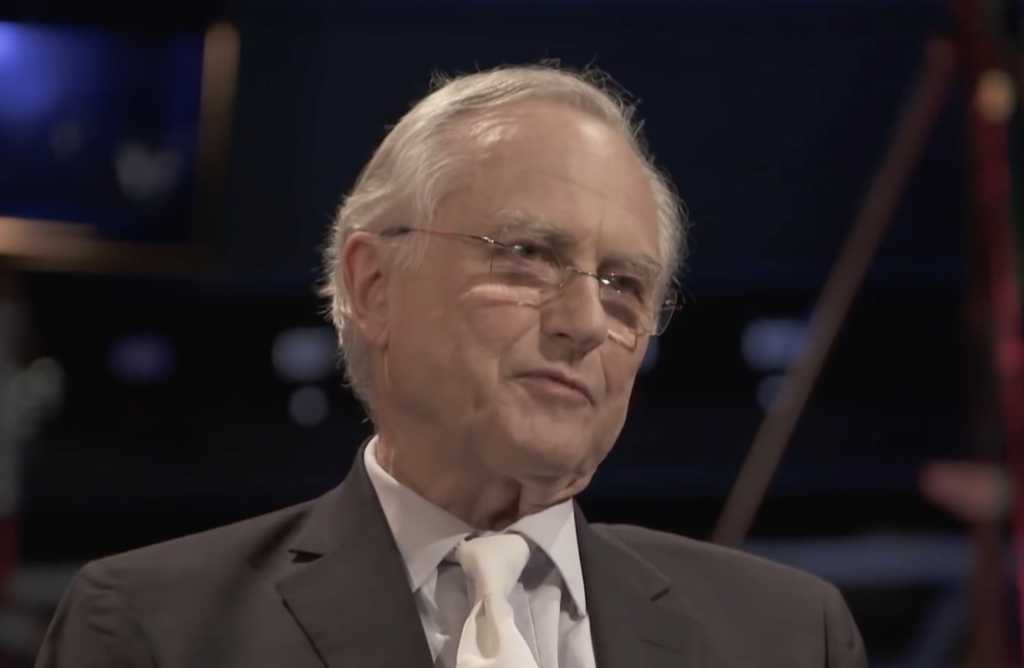It was toward the end of my time at university, around 2007, after having been exposed to the then “New Atheists” such as Richard Dawkins and Christopher Hitchens, that I decided I could no longer believe in the Christianity of my upbringing. I began to consider atheism as a genuine alternative and thought myself to be embracing a more sophisticated view of things, including the animal nature of humanity.
One of my best friends had just become an atheist, and he credited “The God Delusion.” I vividly remember him saying, “You have to read this book by Rickard Dawkins, it’s amazing.” So the impetus in embracing atheism was very much being exposed to Dawkins. Following the trail of Dawkins, via YouTube, I discovered Hitchens, then Sam Harris and then gradually many others that continued to expose me to this new form of atheism.
Dawkins had a very profound influence on the way I thought, especially his definition of faith: “believing something without any evidence or against the evidence.” In other words, you should only believe things where there is good evidence; if you believe it without evidence, that’s faith.
Listen to the latest episode of the Faithwire podcast 👇
This statement made great sense to me. It explained why our lecturers at university were banging on about plagiarism and citing your sources, because that’s a way of giving evidence. But it just resonated with me as being very obvious, and I just thought, “Well of course, that’s the way I should live.”
It felt so freeing to me, because it meant that anything I didn’t like or disagreed with, I could challenge it and say, “Show me the evidence or I won’t go along with it.” I bought his line, “You need evidence; don’t bother with it if there’s no evidence,” and that’s exactly what I went looking for.
I began watching a lot of debates between Dawkins, Hitchens and other “New Atheists,” with Christians who defended their faith very poorly. Dawkins would be laying into them, and Hitchens would be ripping them apart and I’d be cheering them on saying, “Yes! Go for it! Show this moron that he’s talking nonsense.”
But then I saw a debate with John Lennox; there was so much more nuance in that one. And then I discovered William Lane Craig. There was a video of him responding to the central argument in “The God Delusion,” in which Dawkins famously says, “God almost certainly does not exist.” Craig showed that the conclusion doesn’t even follow logically from the premises of the argument, which is ironic considering the fact that Dawkins kept saying that he’s being logical and rational in his argumentation and evidence.
Dawkins’ central argument in “The God Delusion” also contains a number of false assumptions, one of which even undermines science itself. It is also question-begging, because Dawkins assumes that the only kind of designer that you could invoke to explain the universe would also have to be a material entity composed of complex parts (which assumes naturalism from the outset). His argument doesn’t even address the immaterial, transcendent, divine mind that is the classic concept of God.
As someone trying to dispel Christianity on the basis of lack of evidence, it was inconvenient to be shown these types of inconsistencies in new atheism, but I also found it very intriguing. To see a Christian philosopher use logic, reason and evidence in a way that seemed even more transparent than what the new atheists were doing intrigued me as an intellectual. So I started exploring Craig’s work in greater depth. The facts and information I found began to gradually shift my beliefs into what you might call agnosticism.
I began to see that the new atheist’s arguments weren’t as straightforward as they were making them out to be. They still had many valid complaints, and I had no interest in being pulled back into any kind of organized religion. But as an intellectual pursuit, I found it compelling to follow Dawkins’ admonition to look for the evidence. And in keeping with intellectual honesty, if there was some evidence of Christianity, I needed to examine it. I still wanted Christianity to be false, so was hoping the evidence I explored wouldn’t be too convincing.
At about that same time, there was a lot of internet chatter around the idea of Dawkins and William Lane Craig having a debate. You’ve got the foremost atheist in the world, and what appears to be the most rigorous or the foremost defender of Christianity, so it makes sense that they ought to have a debate or dialogue. Therefore, it seemed very odd that Dawkins wasn’t interested. He was very dismissive and really just never gave any good reasons for not engaging.
I think I was on the edge of becoming a Christian at that point, feeling a little disappointed that these new atheists couldn’t really deliver what they said they promised, and being shown the evidences pointing me back toward true Christianity. These evidences included the historical case for the Resurrection of Jesus, as well as how modern cosmology supports the Kalam cosmological argument for God’s existence (see reasonablefaith.org for more). My allegiances were gradually shifting toward the Christian worldview.
So, it was actually Dawkins’ teaching to find evidence that led me to turn away from atheism and to embrace Christianity.
Peter Byrom is a producer and administrative assistant for Premier Insight which produces podcasts such as “Unbelievable?” and “The Big Conversation” in which people of opposing views engage in civil discussions about issues of belief, life, science and meaning.
***As the number of voices facing big-tech censorship continues to grow, please sign up for Faithwire’s daily newsletter and download the CBN News app, developed by our parent company, to stay up-to-date with the latest news from a distinctly Christian perspective.***


